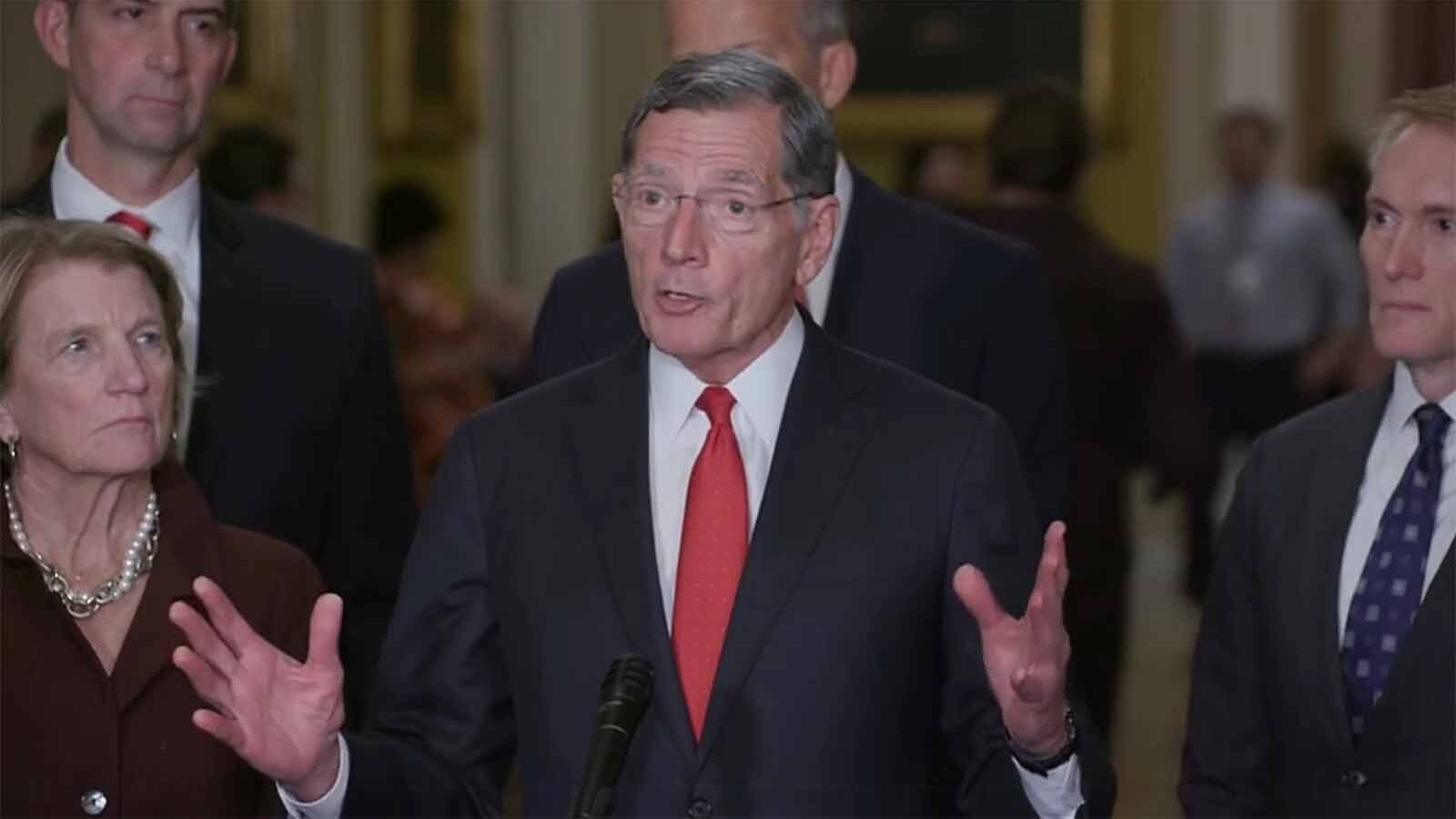CHEYENNE — The leaders of a Wyoming Legislature committee dedicated to regulating artificial intelligence celebrated Tuesday after a provision banning state AI regulations was removed from the Republican-backed economic policy bill formerly known as the One Big, Beautiful Bill Act.
Rep. Daniel Singh, R-Cheyenne, said he was glad to see the provision removed, while Sen. Chris Rothfuss, D-Laramie, said he was relieved.
Gov. Mark Gordon said he was pleased to see the provision gone.
“Had the 10-year moratorium passed, we could have seen one of the greatest technological leaps in human history—the invention of Artificial General Intelligence—placed under the control of Congress in Washington, D.C., an institution not exactly known for operating at the speed of business,” Singh told Cowboy State Daily.
Artificial general intelligence refers to a theoretical possibility that computers develop intelligence and the ability to use it in a similar way to humans.
“It has the potential to revolutionize everything from medicine to defense to infrastructure,” Singh said. “But if we shackle that innovation to the pace and dysfunction of federal bureaucracy, we risk missing its benefits—or worse, mishandling its power. That’s a risk we shouldn’t take.”
Emerging technology is one of the few areas where lawmakers can reach across the aisle, Singh continued. It gives lawmakers a chance to extend an olive branch and craft policy to honor values and promote innovation, he added.
The provision’s language was “dangerously shortsighted” and would have “tied the hands of state legislators trying to protect citizens in a rapidly evolving AI landscape,” Rothfuss told Cowboy State Daily.
“I’m relieved to see at least one deeply problematic provision removed from an otherwise deeply flawed bill,” Rothfuss added.
That Pesky 10th Amendment
Singh also said the provision has 10th Amendment problems.
The 10th Amendment specifies that all powers not provided to the federal government in the Constitution are left to the states.
“I’m especially grateful that Congress left this issue to the states, as the 10th Amendment intended,” Singh said. “If it’s not a federal power, it belongs to the states—that’s how our system was designed.”
Provisions like the AI regulation moratorium don’t belong in budget reconciliation bills, Singh continued.
“Sen. [John] Barrasso himself hinted that these topics require their own bills — and I agree,” Singh said.
The U.S. Senate earlier Tuesday passed the legislation President Donald Trump had dubbed the One Big, Beautiful Bill with the help of Vice President J.D. Vance’s vote after the Senate had deadlocked after more than 60 hours of back-to-back all-night sessions.
The bill, which had included the AI provision, preserves tax cuts, boosts military and border security spending, reduces Medicaid spending and incentivizes oil, gas and coal mining.
Barrasso told Cowboy State Daily on Monday that Utah Republican Sen. Mike Lee’s proposal to sell some federal land in Wyoming and 10 other western states, that had also been proposed, needed to be in its own bill.
“These are serious matters that deserve standalone debate, not to be buried in massive spending packages,” Singh added. “The public deserves transparency and time to weigh in without feeling like the process is being rushed or hidden.”
Singh added he supports a single-subject rule at the federal level just like Wyoming has.
“It’s a simple safeguard that ensures clarity, honesty, and public trust,” Singh said.
Almost Unanimous
The Senate voted 99-1 Tuesday morning to remove the provision.
Sen. Thom Tillis, R-North Carolina, cast the lone no vote.
The provision received criticism from across the political spectrum including from a group of Republican governors — including Wyoming’s Mark Gordon — that signed a letter sent to Senate Majority Leader John Thune, R-South Dakota, and House Speaker Mike Johnson, R-Louisiana, requesting its removal.
“AI is already deeply entrenched in American industry and society; people will be at risk until basic rules ensuring safety and fairness can go into effect,” the governors said in the letter.
As the technology evolves and becomes more practical, “It will significantly alter our industries, jobs, and ways of life, and rebuild how we as a people function in profound and fundamental ways,” the governors wrote.
AI dominance is the next front of competition between the United States and its adversaries like China, the governors said.
States have led on anti-Communist Chinese action, banning Communist Chinese-affiliated companies from owning farmland and property around critical infrastructure and military bases,” they said. “... We must curb AI’s worst excesses while also encouraging its growth, which is exactly what states have done through the creation of their own regulatory frameworks.”





